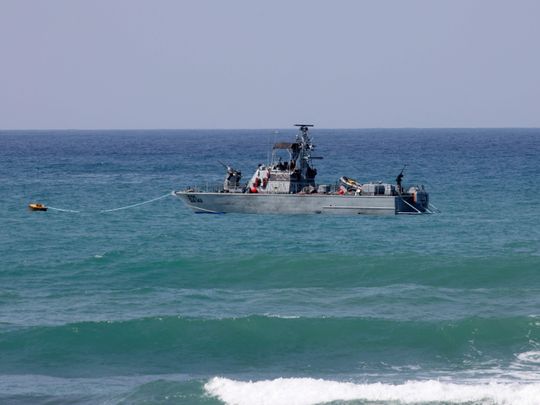
Jerusalem: Israel on Thursday rejected revisions requested by Lebanon to a US-mediated border demarcation proposal, throwing into doubt years of diplomatic efforts to enable both enemy countries to extract gas in or around a disputed Mediterrean prospect.
The draft deal, which has not been made public, had a mostly warm preliminary reception from the Israeli and Lebanese governments when they received it from US envoy Amos Hochstein at the weekend.
But there has also been domestic opposition in both countries, which are technically at war. Lebanon submitted revision requests which Israel received on Thursday.
Israeli Prime Minister Yair Lapid “was updated on the details of the substantial changes Lebanon is seeking to make in the agreement and instructed the negotiating team to reject them”, an Israeli official said.
Reacting to the Israeli decision, top Lebanese negotiator Elias Bou Saab told Reuters on Thursday that he would only respond to official statements and not to media reports on Israel’s stance.
He said the deal “is 90% done but the remaining 10% could make it or break it,” adding that he was in constant contact with U.S. mediator Amos Hochstein.
In parallel to the indirect talks, Israel has been preparing to activate a gas rig, Karish, that it says is outside the disputed Qana prospect. Lebanon’s Iran-backed Hezbollah has made veiled threat against Karish that gave urgency to the diplomacy.
Israel had presented the draft deal with Lebanon, if finalised, as securing Karish. On Thursday, it changed tack.
“Israel will produce gas from the Karish rig as soon as it is possible to do so,” the official said. “If Hezbollah or anyone else tries to damage the Karish rig or threaten us - the negotiations on the maritime line will stop immediately.”
Defence Minister Benny Gantz further hardened the tone, saying in a speech that should Hezbollah try to strike at Israeli interests “the state of Lebanon will bear a heavy military price”.
There was no immediate response from Hezbollah or the Lebanese prime minister’s office.
With the centrist Lapid serving in a caretaker capacity ahead of a November 1 election, the political opposition had demanded Knesset ratification for the deal.
Lapid’s main rival, conservative ex-Prime Minister Benjamin Netanyahu, had argued that the deal could surrender Israeli maritime rights and benefit Hezbollah.
Beirut, meanwhile, has balked at Lapid’s assertion that Israel will be paid partial royalties from future Lebanese exploration in the Qana gas prospect. A Lebanese ex-negotiator and some opposition lawmakers have argued that the proposed border demarcation skews too far north, thus favouring Israel.
But Lebanon is also keen for any sign of relief from a spiralling economic crisis, and its president, Michel Aoun, wants to seal the maritime deal before he steps down at month’s end, according to political sources.












